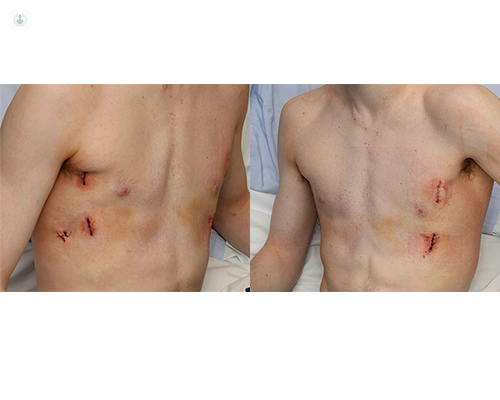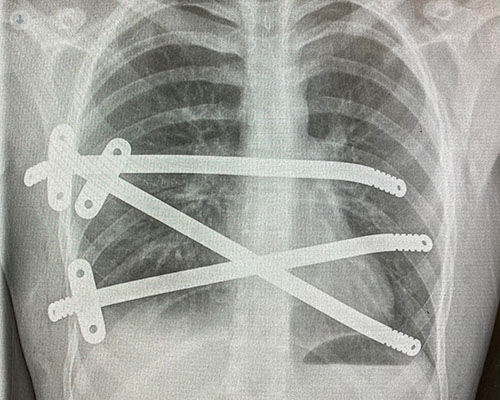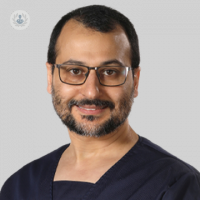What is Pectus Excavatum?
Written by:Pectus excavatum is a chest wall disorder which occurs due to growth abnormality. Esteemed thoracic surgeon Dr Ahmed Habib explains everything you need to know about the condition.
What is Pectus Excavactum?
Pectus excavatum is the most common chest wall disorder and it affects 1 in every 400 people. The cause of the disorder is unknown.
The condition can run in families, although there is no known genetic mutation.

When is pectus excavatum likely to occur?
Pectus develops around times of growth spurts, usually in adolescence. However, in some cases, it may present earlier. The ribs overgrow, pushing the breastbone inwards.
Clinical overview of pectus excavatum
Some patients are not concerned about having the condition, while others are more concerned that it will have significant effects on their life, especially with higher degrees of pectus excavatum.
Those with a higher degree of pectus may experience:
- Social withdrawal
- Poor exercise tolerance due to effects on the heart and lung.
- Pain

How can I prepare for pectus excavatum?
Patients considering surgical treatment require work up beforehand, which is composed of:
- Radiography: this can assess the degree (Haller index) and symmetry of the pectus, which can aid in surgical planning.
- ECHO: to assess the impact on the heart.
- Lung function tests.
- Medical photography for medical records.
How can Pectus Excavatum be treated?
Minimally invasive surgery is the standard of care (Nuss bar). This involves passing a bar behind the breastbone and in Infront of the ribs. The bar is then positioned in such a way that it pushes the breast bone forwards.


I usually use more than one bar, depending on each individual case. I have also adopted the cross bar technique (for selected cases), allowing greater forward thrust on the breast bone to be distributed across the ribs. This allows better long-term results.
If you are suffering from Pectus Excavatum and would like to book a consultation with Dr Habib, you can do so by simply visiting his Top Doctors profile today.


